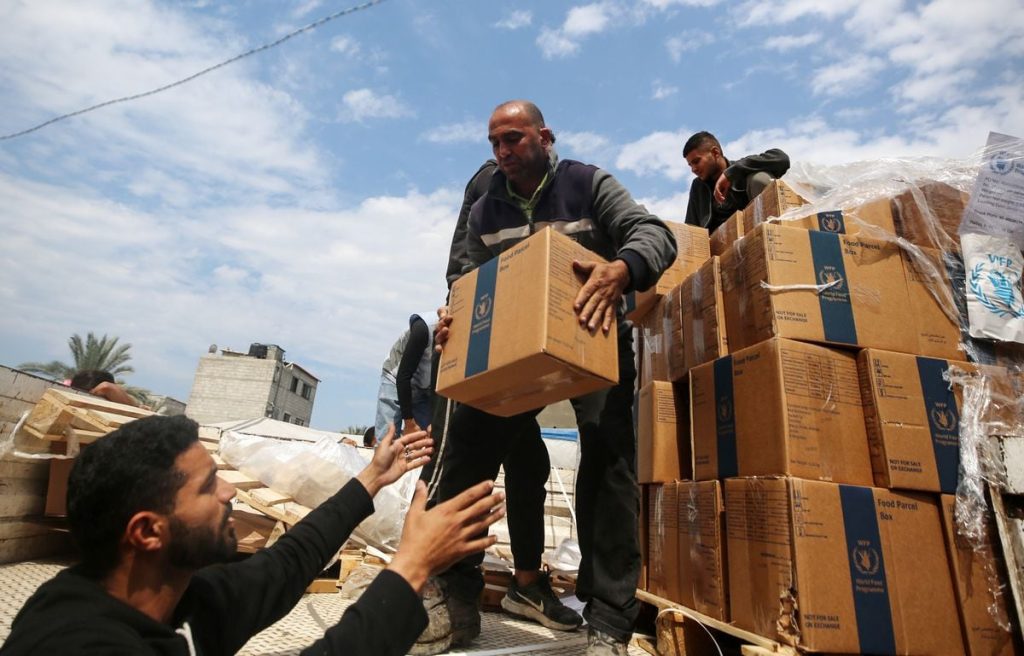According to the Report on the NGO Sector for 2023, presented on Wednesday with data from 2021 and 2022, the Spanish government ranks last in terms of public funding contributions to NGOs working in development. In 2022, a total of 930 million euros were received, with 55% (513 million) coming from public funds. International and European organizations are the main providers of public support to these NGOs focused on humanitarian action and education for global citizenship, contributing 33% and 27% respectively. Regional and local funds accounted for 23.3%, while the government provided a modest 16.5%. The coordinator considers this amount insufficient to reach the 0.7% target for 2030 agreed upon in the cooperation law, especially given the current international crisis context.
Irene Bello, president of the Coordinating Organizations for Development, highlighted the presence of around 60 ongoing armed conflicts worldwide, in addition to conflicts like the Israel-Gaza war and the situation in Ukraine. She emphasized that the consequences of these conflicts are global and affect more than just the countries involved. This is the first time since 2010 that Development NGOs have reached their highest level of public funds. The economic crisis that began in 2008 resulted in an 80% cut in aid, marking a lost decade for cooperation efforts. The sector is currently weakened due to decentralized cooperation efforts and a lack of professionalization, as stated by Bello.
Antón Leis, director of the Spanish Agency for International Development Cooperation, pointed out the humanitarian crises in Gaza and Sudan, and connected Spain’s responsibility in Africa to the direct impact on issues such as the tragic migration to the Canary Islands. The organization urged the government to provide specific budgets in line with the cooperation law implemented a year ago, which committed to reaching a 0.7% investment of the gross national income for development support by 2030. According to Leis, this 0.7% is a modest amount, and he stressed the importance of Spain increasing its commitment to support these efforts.
Bello acknowledged that NGOs are currently operating with extended budgets, which could hinder reaching the established goals for 2030. She highlighted that Spain has not been at the forefront of defending human rights and protecting the planet, emphasizing the need for Spain to reclaim its previous position of leadership in this area. The sector in Spain faces challenges due to decentralization and a lack of professionalization, and Bello emphasized the importance of turning cooperation into a real policy objective. Despite progress, Spain still has room for improvement in advancing these goals and protecting human rights.
The report highlighted the growing support from citizens for these NGOs, with over 2.5 million people collaborating with these organizations in 2022, representing a 4% increase from the previous year. Around 17,200 individuals volunteered, with 74% of them being women. Spain is recognized as one of the countries with a solid social base for solidarity efforts. The NGOs also receive private funding, with 45% of the total funds received in 2022, amounting to 417.5 million euros, coming from private donations. The 617 NGOs operating in 100 countries focus on projects promoting education, gender equality, human rights, and food security among other initiatives, benefiting 47 million vulnerable individuals.
The Spanish Congress approved the Sustainable Development and Global Solidarity Cooperation Law in February last year, responding to the sector’s demands for an updated law to replace the outdated 1998 legislation. The new law includes explicit recognition of a feminist approach to foreign policy, alignment with international agendas like the United Nations Sustainable Development Goals and the Paris Agreement, and a commitment to reach a 0.7% investment of the gross national income for development aid by 2030. This legislation marks an important step towards strengthening cooperation efforts and supporting global development initiatives.


